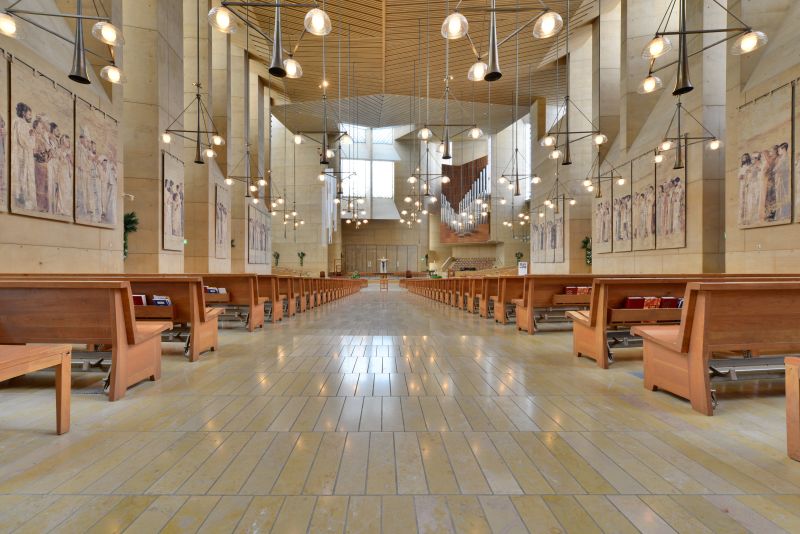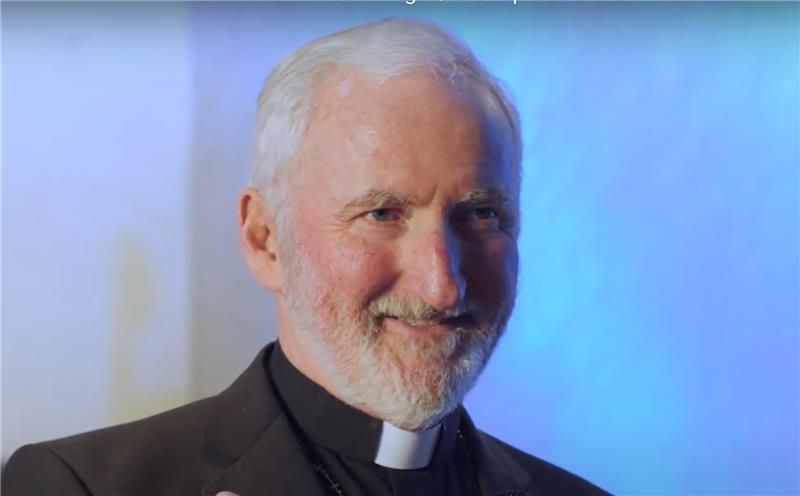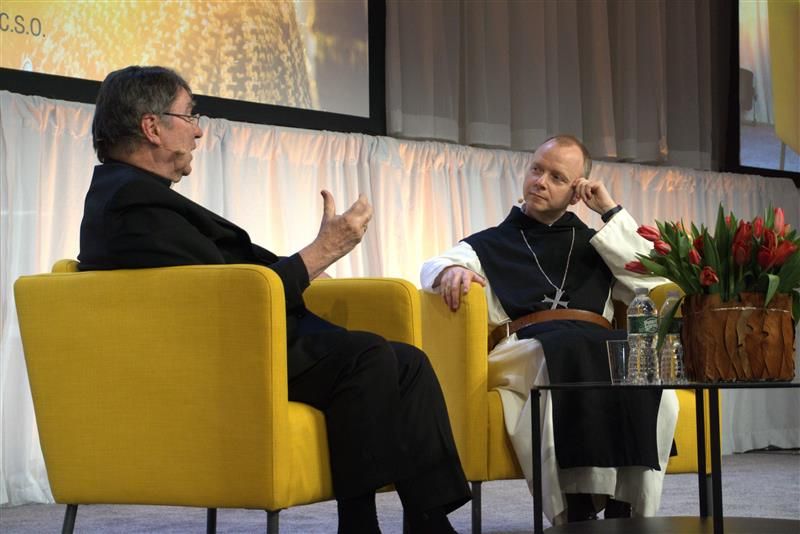
Funeral and public viewing set for murdered Bishop David O’Connell
 A view of the nave of the Cathedral of Our Lady of Angels where the funeral Mass for Bishop David O’Connell will be celebrated / David Leigh Ellis|Wikipedia|CC BY-SA 3.0
A view of the nave of the Cathedral of Our Lady of Angels where the funeral Mass for Bishop David O’Connell will be celebrated / David Leigh Ellis|Wikipedia|CC BY-SA 3.0
Boston, Mass., Feb 24, 2023 / 11:17 am (CNA).
The Archdiocese of Los Angeles has announced the funeral arrangements for the late Auxiliary Bishop David O’Connell, who was murdered in his Hacienda Heights home on Feb. 18.
Three days of services will be held for O’Connell, beginning on Wednesday, March 1.
On Wednesday, there will be a memorial Mass for O’Connell at St. John Vianney Catholic Church, 1345 Turnbull Canyon Rd. in Hacienda Heights, at 7 p.m. PST. The Mass will be livestreamed here.
There will be a public viewing on Thursday at the Cathedral of Our Lady of the Angels at 555 West Temple St. in Los Angeles. The viewing will take place from 10 a.m. to 12 p.m., and 1 p.m. to 6 p.m.
A vigil Mass will be held following the public viewing at 7 p.m. and will be livestreamed both here and here.
O’Connell’s funeral Mass will be held on Friday, March 3, at the same Cathedral of Our Lady of the Angels at 11 a.m. local time. The funeral Mass will be livestreamed both here and here.
O’Connell, who was known as “Bishop Dave,” served the San Gabriel Pastoral Region of the archdiocese, which covers East Los Angeles through the San Gabriel and Pomona Valleys.
Born in 1953 in County Cork, Ireland, he was ordained a priest in 1979 in Dublin, Ireland. O’Connell then began serving in the Archdiocese of Los Angeles and held many different positions during his priesthood, in which he ministered to immigrants and those affected by both gang violence and poverty.
Pope Francis named him an auxiliary bishop for the Archdiocese of Los Angeles in 2015.
O’Connell was pastor at St. Frances Cabrini Parish when the violent 1992 L.A. riots took place after the acquittal of four police officers who had been videotaped beating an unarmed black man, Rodney King.
He worked to restore trust between law enforcement and residents by bringing the two together in people’s homes for dialogue.
“That was part of our work as a Church, to try to provide spaces for conversations,” he told CNA in a 2020 interview. “And we thought we really had achieved a lot of progress. Killings were way down in south Los Angeles. There was a trust built up between LAPD and residents. This level of trust has helped us over many different crises over the last almost 30 years to be able to talk things through.”
Father Jay Cunnane, pastor of St. Cornelius Parish in Long Beach, California, and a close friend to O’Connell, told EWTN News Nightly that the bishop had a “great heart” for people on the margins of society, specifically immigrants and the poor.
Cunnane called O’Connell “an effective organizer” for those on the margins.
When he heard the news of O’Connell’s murder, Cunnane said he was “speechless” and “shocked.”
“I’m still sort of stunned. But grateful to God for having had all those years a good friend to walk the road with,” he said.
That interview can be seen below.
In a Wednesday press conference, Los Angeles District Attorney George Gascón said that Carlos Medina of Torrance, the suspect in custody, has admitted to murdering the bishop.
It was revealed in a press conference Monday that Medina is the husband of O’Connell’s housekeeper, who remains unnamed. Los Angeles Sheriff’s Department Sheriff Robert Luna said at that press conference that Medina had done work at the bishop’s residence as well.
It’s currently unclear what the motive for the killing was. Bail was set at $2 million.




